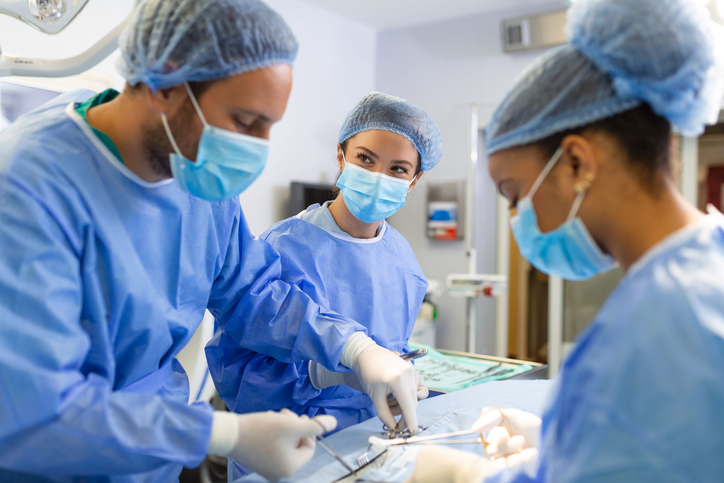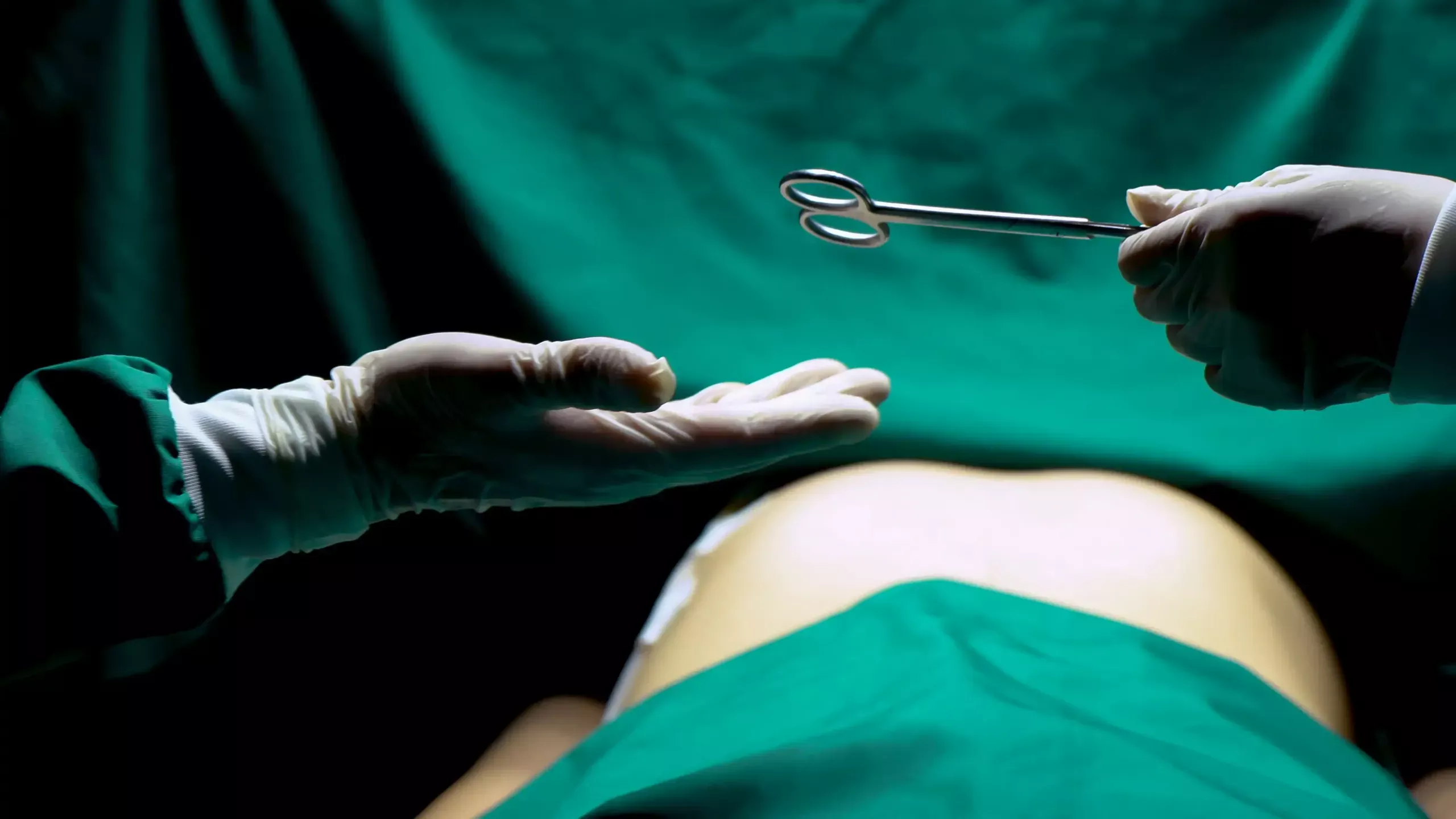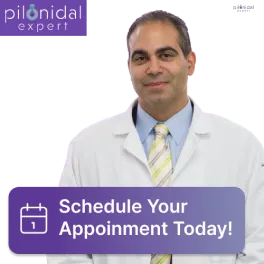Pilonidal cysts are a common but painful condition that affects the skin near the tailbone. While conservative treatment methods can be beneficial in controlling the symptoms of a pilonidal cyst, a colorectal surgeon pilonidal cyst may be required in some circumstances.
In this article, we will examine pilonidal cyst surgery, highlighting the importance of a colorectal surgeon in treating this condition and analyzing the procedure’s severity.

Understanding Pilonidal Cysts
A pilonidal cyst is a pocket or sac that arises in the buttock cleft right above the tailbone. It happens when hair follicles get infected or inflamed, resulting in the formation of a cyst. Excessive hair growth, poor cleanliness, extended sitting, and friction or pressure on the afflicted area can all lead to pilonidal cysts.
Initial Treatment Approaches
When a pilonidal cyst is found, the initial treatment often involves conservative measures. Warm compresses, antibiotics to treat infection, pain relievers, and basic hygiene practices are examples of such interventions. However, if the cyst recurs, causes severe discomfort, or develops into an abscess, surgery may be required.
The Role of a Colorectal Surgeon
When it comes to pilonidal cysts, the experience of a colorectal surgeon is critical to ensuring appropriate treatment and the best possible outcomes. Colorectal surgeons are highly skilled medical experts that specialize in the diagnosis and treatment of colon, rectum, and anus problems. Because of its proximity to the anal region, pilonidal cysts are treated with colorectal surgery. Here’s a closer look at why a colorectal surgeon is so important in pilonidal cyst treatment:
- Accurate Diagnosis: Colorectal surgeons are trained to accurately diagnose pilonidal cysts based on clinical presentation and diagnostic tests. They have a thorough awareness of the condition’s distinctive characteristics and symptoms, allowing them to distinguish it from other comparable disorders.
- Surgical Expertise: Colorectal surgeons possess specialized knowledge and surgical skills required to perform pilonidal cyst surgeries effectively. Depending on the individual case and the complexity of the cyst, they are trained in a variety of surgical techniques and approaches, including as incision and drainage, excision and closure, and flap treatments.
- Customized Treatment Plans: Colorectal surgeons develop personalized treatment plans tailored to each patient’s specific condition. They take into account criteria such the size and location of the cyst, the existence of infection or abscess, and the patient’s overall condition. This personalized approach ensures that the best treatment alternatives are chosen for the best results.
- Minimizing Recurrence: Recurrence of pilonidal cysts is a common concern. Colorectal surgeons are experts in addressing the underlying reasons and risk factors for recurrence. They concentrate not just on removing the cyst but also on removing sinus tracts, diseased tissue, and hair follicles, all of which might lead to recurrence. Their knowledge contributes to a lower risk of cyst recurrence.
- Comprehensive Care: Colorectal surgeons provide comprehensive care throughout the entire treatment process. They continuously monitor patients’ development and guarantee optimal wound healing from the initial consultation and diagnosis to the surgical procedure and post-operative care. With their specific expertise and experience, they also address any issues that may emerge, such as infection or delayed recovery.
- Patient Education and Support: Colorectal surgeons are extremely important in patient education and support. They take the time to explain the condition’s nature, the recommended surgical method, and the expected consequences. They address any issues or questions patients may have, offering the knowledge needed to make informed treatment decisions.
Also See: The Role of Nutrition in Healing After Pilonidal Cyst Surgery
Pilonidal Cyst Surgery Procedures
Incision and Drainage: An incision is made to drain the cyst and remove any contaminated material or debris. It is usually done under local anesthetic and is advised for acute or infected cysts.
Excision and Closure: Excision and closure surgery may be performed if the cyst is recurring or chronic. The entire cyst, including the sinus tubes and any hair follicles, is removed during this treatment. Depending on the surgeon’s discretion, the wound is subsequently closed with sutures or left open to heal from the inside out.
Flap Procedures: More advanced methods, such as flap procedures, may be used for difficult or recurring pilonidal cysts. These methods utilize the use of healthy tissue from the surrounding area to reconstruct the area and encourage healing.
How to recover after having a pilonidal cyst surgery?
Following pilonidal cyst surgery, the recovery period is critical for good healing and reducing the risk of complications. While each person’s recovery may differ based on the amount of the operation and their overall health, there are general recommendations and practices that can help. Here are some crucial steps to help in the healing process:
Follow Your Colorectal Surgeon’s Post-Operative Recommendations: Your colorectal surgeon will give you unique post-operative recommendations based on your situation. To enhance healing and limit the danger of infection, it is critical to carefully follow these directions. Wound care recommendations, medication schedules, dietary restrictions, and exercise restrictions are all examples of instructions.
Wound Care: Proper wound care is critical for infection prevention and healing. Your surgeon may tell you to keep the surgery site clean and dry, and to change bandages as indicated. It is critical to employ the suggested cleaning techniques and any topical medicines or ointments.
Pain and discomfort are frequent following pilonidal cyst surgery. To manage any post-operative pain, your surgeon may prescribe pain medicines. Take the medications as directed, and consult your healthcare practitioner if you have any concerns or side effects.
Activity and Rest: It is critical to balance rest and activity during the early phases of recovery. While complete bed rest is not required, it is recommended that strenuous activities, heavy lifting, and extended sitting be avoided to reduce pressure on the surgery site. When it is safe to resume normal activities and return to work or school, your surgeon will advise you.
Maintaining good hygiene is essential during recuperation time. Keep the surgical area clean and dry, and follow your surgeon’s bathing and wound care instructions. Use gentle washes and lotions to avoid irritating the incision site.
Eating a nutritious, well-balanced diet can help the healing process. Consume meals that encourage tissue repair and immune system support. Specific dietary advice based on your individual needs should be discussed with your healthcare physician or a qualified nutritionist.
Follow-Up meetings: It is critical to schedule regular follow-up meetings with your colorectal surgeon to check your progress and handle any concerns or issues. Attend all scheduled appointments and discuss freely with your surgeon about your recovery.
Emotional Support: Healing following surgery can be both physically and emotionally taxing. Seek aid from friends, family, or support groups to cope with any emotional suffering that may emerge during your rehabilitation.
Remember that each person’s rehabilitation journey will be unique, so it’s critical to talk with your healthcare practitioner for tailored guidance and recommendations based on your specific situation. You can aid a smooth and effective recovery after pilonidal cyst surgery by following these general suggestions and maintaining open communication with your surgeon.
Find a Colorectal Surgeon Pilonidal Cyst Near Me
Discover the excellence of Pilonidal Experts in pilonidal cyst treatment. Check out our website to learn more about our specialist services and read patient testimonials. Schedule a consultation with one of our colorectal surgeon pilonidal cyst, and receive tailored care.
Pilonidal Experts will help you through your treatment journey by using cutting-edge procedures and a dedication to your well-being. Choose our recognized expertise to restore control of your health and comfort. Contact Pilonidal Experts today to see how we can make a difference in your life.








